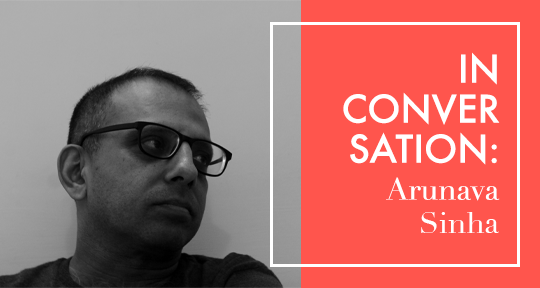This week, our editors bring news of commendations, intercultural exchanges, and champions of free speech that highlight the need for bold voices and acts of solidarity.
Zohra Salih, Editor-at-Large, reporting from India
Winter is here—not just in the air outside, but within our hearts. One finds it hard to write about literature and culture with genuine excitement in times like these, when Gaza, already deeply wounded, is bleeding again with little hope in sight. It feels anachronistic to mention the many literary festivals and prizes that are scheduled for this winter, as if one is inhabiting two distinct worlds: one with cause for celebration, another for mourning. At the very least, it seems right to acknowledge this disparity, and to consider the very real responsibility of all literary enthusiasts in bridging this divide, in keeping our eyes and ears open, and in being willing to allow for other truths and realities to be translated as part of our own.
On that note, the JCB Prize for Literature has announced its longlist for 2023, featuring four works in translation. Simsim by Geet Chaturvedi, translated by Anita Gopalan, and I Named My Sister Silence by Manoj Rupda, translated by Hansda Sowvendra Shekhar (who was himself longlisted for the prize previously), are both written originally in Hindi; The Nemesis, Manoranjan Byapari’s latest work, is translated from Bengali by V Ramaswamy, and it is also worth noting that this is the third time that the fiery writer has been featured on the longlist.
Perumal Murugan’s Fire Bird is also on the longlist, and was translated from the original Tamil into English by Janani Kannan. A professor of Tamil literature, Murugan’s works have garnered critical acclaim through translations, including Madhorubhagan (One Part Woman), his best-known work, which won the prestigious ILF Samanvay Bhasha Samman in 2015, and caused massive uproar amidst conservatives because of its bold and feminist themes—leading to the author briefly declaring that he was ‘dead’ and retired from writing until the Madras high court judgment unequivocally upheld his artistic freedom. Murugan’s profound and incisive explorations of caste and its entanglement in every rubric of Indian society have also rightly led to his book, Pyre, being longlisted for the International Booker Prize this year, as well as his receiving a Lifetime Achievement Award at the seventh edition of the Ooty Literary Festival, which wrapped up this October. READ MORE…




